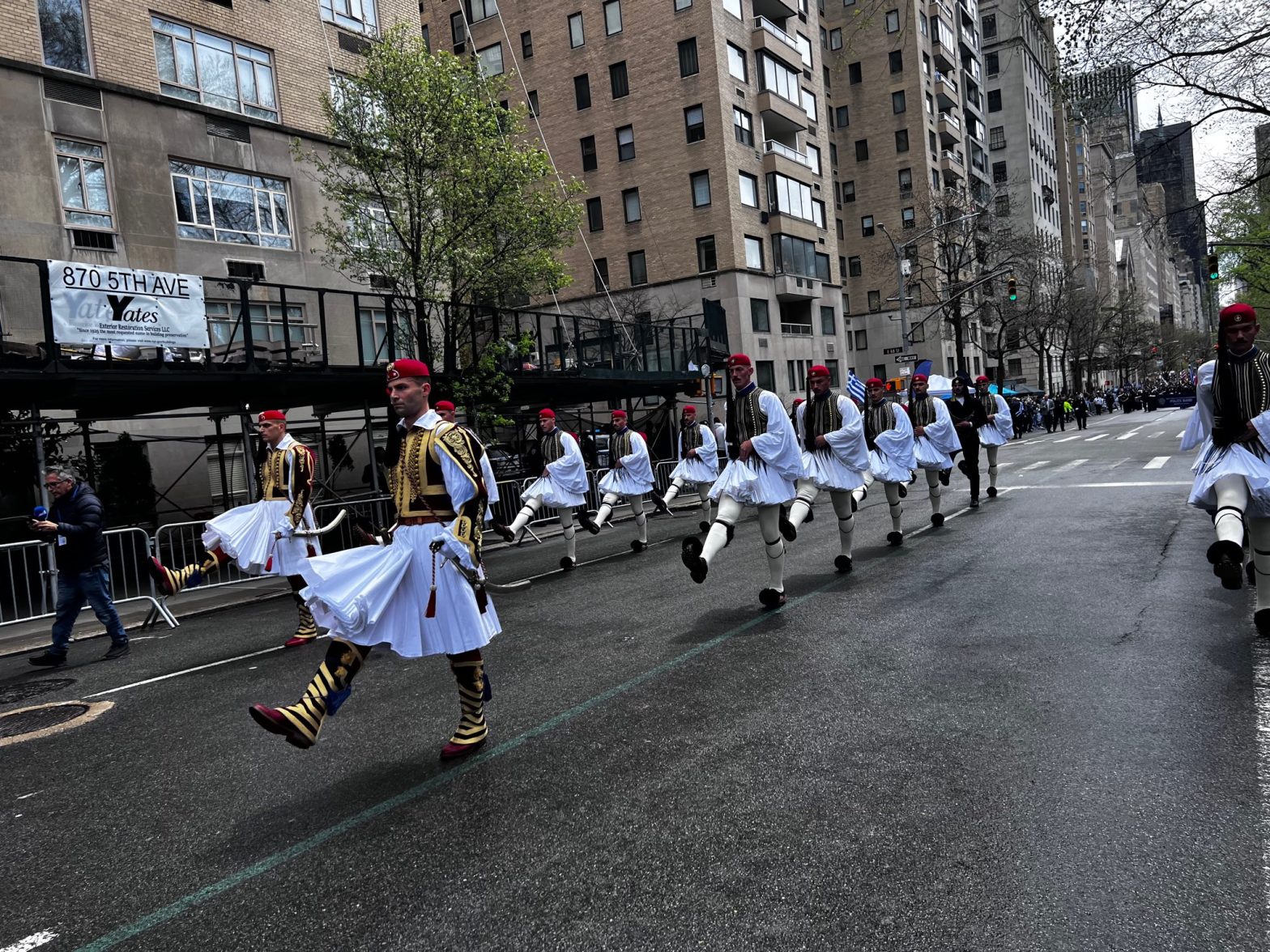General News
Meropi Kyriacou Honored as TNH Educator of the Year
NEW YORK – Meropi Kyriacou, the new Principal of The Cathedral School in Manhattan, was honored as The National Herald’s Educator of the Year.

On July 25, the world experienced the majestic play The Persians livestream from the Ancient Greek theater of Epidaurus, presented by the National Theatre of Greece and broadcast worldwide with English subtitles. The discourse of the ancient Greek tragedy is very relevant today, given that the authoritarian phenomenon in Turkey is increasingly manifested on the eastern sea borders of Greece, on the sea borders of Europe. It results in aggressive statements, violations of sovereignty rights, illegal treaties with Libya, arrogance, and arbitrariness. The Aeschylean tragedy of The Persians examines Xerxes’ hubris to extend his hegemony beyond Asia by subjugating the free Greek world. In modern times, the new expression of hegemony and expansionism from the East to the West, is not only a Greek matter, although the Greeks are again the vanguard. It is a matter for the whole western world, and the sooner this is understood, the more effectively the risk will be averted.
Aeschylus’ Persians has two particular unique features in comparison to all the other ancient tragedies. These two features pertain to the historical account of its plot and meaning that make this play a “timeless possession for humanity,” as Thucydides would have stated. First, The Persians is the only surviving tragedy that has no mythical context and it is situated in history, more precisely the naval battle of Salamis that took place in 480 BC; the tragedy was performed in Democratic Athens in 472 BC, eight years after the victory of the Greeks in the Persian Wars. Second, due to its historical background, this tragedy does not refer to the notion of Justice (Dike), which is a central theme for the entire corpus of Greek tragedies but rather it focuses on the notion of Sound Judgment (Phronesis). Xerxes is not presented to be unlawful but instead an ill-disposed leader, the Chorus says, “Xerxes handled everything unwisely.” This approach underscores the perilous nature of his actions and the devastation these actions produce, as the Chorus also says, “The land bewails her native youth, slaughtered for Xerxes, who has crowded Hades with Persian slain. The land of Asia has piteously been bowed to her knees.”
What does the Athenian tragedy The Persians teach humanity today? First of all, it discusses explicitly the conflict between two opposing political worlds: the world of democracy and the world of autocracy. The Persian queen Atossa asks the Messenger, “Who is the shepherd of the (Greek) army?” and the Messenger replies, “They are not slaves of anyone, they are not subject to anyone.” In other words, the Greeks are free, self-governed citizens. Furthermore, the play demonstrates the disgrace of the aggressive war as opposed to the values of the defensive war. In this juxtaposition, the defensive war is greater, since it possesses invincible moral forces: “Forward, you men of Greece! Free your native land. Free your children, your wives, the temples of your fathers' gods, and the tombs of your ancestors. Now you are fighting for all you have.”
But the deeper and implicit meaning of The Persians consists in the loss of a sense of moderation and limits. The political excessiveness paired with arrogance despises rationality and violates the existing order by the means of transgression. The hubris is inherent in hegemony and it feeds it by ultimately engendering its downfall. It is associated with the thirst for expansion and grandiose domination by subjugating other people. This hubristic attitude entails the inevitable downfall of the perpetrator so that the cosmic order can be restored. The political democratic organization with the institutionalized collectivity can historically guarantee moderation and freedom, defending its foundational values. In the tragedy The Persians, the West today should read very carefully its cultural beginnings and its history. Blinded by arrogance, the new Xerxes does not see with the eyes of Sound Judgment, and being an ill-disposed ruler becomes dangerous for enemies and friends.
Dr. Polyvia Parara teaches Classics and Modern Greek Studies at the University of Maryland College Park, [email protected].
NEW YORK – Meropi Kyriacou, the new Principal of The Cathedral School in Manhattan, was honored as The National Herald’s Educator of the Year.

NEW YORK – The New York Greek Independence Parade on Fifth Avenue, commemorating the 203rd anniversary of the Greek Revolution of 1821, was held in an atmosphere of emotion and pride on April 14.
Europe is officially home to the top three beaches in the world, out-ranking famous beach destinations like the Caribbean and Hawaii.
NEW YORK (AP) — Donald Trump will return to a New York courtroom Tuesday as a judge works to find a panel of jurors who will decide whether the former president is guilty of criminal charges alleging he falsified business records to cover up a sex scandal during the 2016 campaign.
ATHENS - Upset over low wages and the refusal of their publishers to sign agreements for collective bargaining, Greek journalists went on a 24-hour strike on April 16, also complaining about a lack of media plurality.
ATHENS — Greece aims to create two large marine parks as part of a 780-million-euro ($830 million) program to protect biodiversity and marine ecosystems, with the plans to be formally announced at an international oceans conference starting in Athens Tuesday.